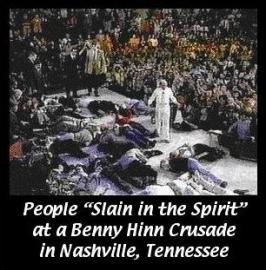Have you ever been to a military ceremony? I’m not just talking funerals – although, unfortunately, that is the most common event anyone not married into or born of a military family will go to – but, if you’ve ever been to a “Welcome Back ceremony” (the frustratingly long ceremony that precedes the big ol’ kiss your about to give your husband/wife/partner after he/she deployed for a year) or an awards ceremony or even a FRG meeting (which stands for Family Readiness Group and consists of mostly stereotypical military wives) you have experienced the prayer.
Ah, yes. The prayer that comes during a government-funded event by a government-funded entity. Nothing more constitutional, eh?
While the US military is starting to do a better job at being more accepting and tolerant of their soldiers’ religion, gender identity and sexual orientation, they still seem stuck in Christianity and won’t seem to let it go. They hide behind the façade of religious tolerance by expanding the number of religions you can now state on your dog tags and by creating and allowing soldiers to wear military issued Yamakas and other religious paraphernalia, and yet, they seem to only ever recite Christian prayers to a Christian god at any public event or even, as I am told by my husband, who served in the Army for 8 years, right before going out on a mission overseas. (As a side note, only up until recently have you been able to put “Atheist” on your dog-tags as opposed to just, “None” in the space dedicated to religious affiliation. It’s great that you can now state it, but a bummer that not only did it take a while to be able to do so, but also that it was allowed around the same time you could state, “Jedi” as your religious affiliation as well… Seriously).
It is one thing to have a government funded military tolerant and accepting of all religions (as I think it should be) but it is quite another for that government entity to then endorse a specific religion by encouraging and leading its members in practice of it. I have been to a lot of military functions and not once has an event started or ended in a Jewish prayer recitation, a Muslim call to prayer, or a devotional Buddhist meditation. Not once.
So what is the point of doing it at all? Why not offer a moment of silence instead, in which anyone can pray or not pray to who or what they want? Or, better yet, why not just avoid the whole thing altogether and let everyone practice their religion on their own time? God forbid that happen. God forbid we forbid god!
Most people who I spoke to in the military never even thought about why they pray at these events or whether they were even OK with it. In fact, the only real reason anyone has even presented to me as to why it is done is that the majority of soldiers and their families (at least in the Army anyways) practice the Christian faith. It makes sense when you think about where, geographically, the majority of the US Army bases are located. They are all over the South and the Mid-West and typically nowhere near either an ocean or a big city (for obvious reasons). These places are known for being in the “Bible-Belt” and have sub-standard education requirements and despicable graduation rates. They breed small-mindedness and encourage ignorance. So, it makes sense that the majority of the people who spend their lives in these places would eventually, if they weren’t already, conform to the lifestyle.
I have never been for the notion or the practice that the “majority rules” and, politics aside, I don’t think that just because the majority of a country or a platoon or a company is one religion, that it should trump all others. You should either do something that pleases all and offends none (which is practically impossible to do) or just do nothing at all (again, not applicable to politics).
The point of not saying a prayer is to respect all people and their beliefs, not to suppress free speech and ideas. It baffles me how people, namely Christians, view the request to omit prayer as a persecution and not a call for respect and compassion. Don’t even get me started on the supposed “War on Christmas” conservative Christians in this country constantly complain about (if you are unfamiliar with this crazy phenomenon, let me know and I’ll enlighten you!).
The most frustrating thing about all of this is that my husband and I have to sit through a Christian prayer yet the military chooses not to practice any other aspect of the religion. Here are just a few examples:
1. Soldiers are often made to work on Sundays.
“Remember the Sabbath day by keeping it holy. Six days you shall labor and do all your work, but the seventh day is a Sabbath to the Lord your God.” Exodus 20:8-10
2. Soldiers in battle are as young as 18 years old.
“So all who were numbered of the children of Israel, by their fathers’ houses, from twenty years old and above, all who were able to go to war in Israel—” Numbers 1:45
3. According to Wikipedia, there have been 848,163 deaths in war since 1776 and 1,531,036 soldiers wounded. (source) And that’s just in America.
“When you go to war in your land against the enemy who oppresses you, then you shall sound an alarm with the trumpets, and you will be remembered before the Lord your God, and you will be saved from your enemies.” Numbers 10:9
“When you go out to battle against your enemies, and see horses and chariots and people more numerous than you, do not be afraid of them; for the Lord your God is with you, who brought you up from the land of Egypt.” Deuteronomy 20:1
4. Newlywed soldiers are not excused from deployment or long-term training.
“When a man has taken a new wife, he shall not go out to war or be charged with any business; he shall be free at home one year, and bring happiness to his wife whom he has taken.” Deuteronomy 24:5
However, when it comes to seeking guidance, they go back to the teachings of Christianity. When a soldier deploys and they have a personal issue they have two choices: 1) Talk to their boss, or 2) talk to a neutral member of their company that isn’t going to start treating them differently or holding what they discuss together against them. This neutral member, however, is the Chaplain. That’s it. Talk to your boss (yikes) or talk to the preacher. Now, if you were an atheist having trouble adjusting to your deployment and the facts of war, who would you go to for help and talk to besides your friends? Probably no one.
I’m completely against any and all endorsements of religion by the US government, whether intended or not. And I am especially against half-assing it. If you are going to endorse a religion, do it all the way. And, if you’re not, don’t even let the thought of any type of religion or religious practice come up in public events or affect others in any way. The same goes for individuals as well. If you are going to say you are a Christian or a Muslim or a Scientologist well then be one! Don’t pick and choose what parts of your chosen religion are convenient for you. And, if you do, don’t you DARE tell me or anyone else that we are in the wrong. That’s just hypocritical.
I do have to say that the ONLY time I enjoyed an Army prayer was during the “Welcome Back” ceremonies. Hundreds of horrible smelling guys (my husband was in the infantry so there were very few, if any, women attached to his units) all wearing exactly the same thing, walking in exactly the same way and standing in the exact same formation made it near impossible to spot my husband’s face in the crowd. As soon as they would announce the prayer though, all the sheep heads would bow in unison and there would be my husband’s handsome face. I could spot him in an instant and run straight into his arms when the ceremony was over. If there’s anything in the world that can get me to look forward to a prayer, that moment is it.


















